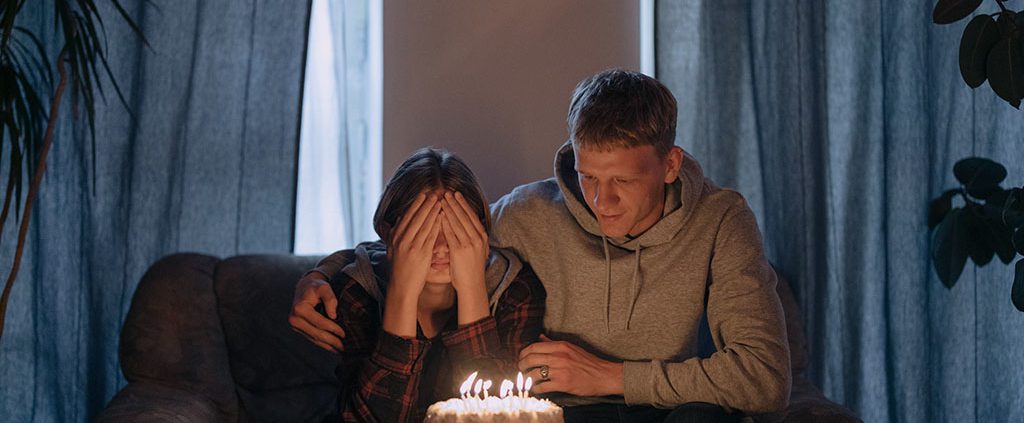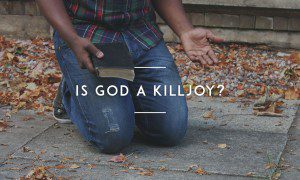Does God Care About What I Want?
It was one of those days. I was trying to stomach a failure in my job—yet another rejection in my writing career—and I sat at the kitchen table with my husband, shaking my head. I shared how one of God’s key messages to me for the past year seemed to be this idea of making “no graven image” (Exodus 20:4). Meaning, I had to be really careful to not remake God as “the God of my desires”.
Then my husband’s eyes levelled with mine. “I think you also have to be careful not to make an image of God who wants whatever you don’t want.”
I know why my husband said that. As a person who loves to sacrifice for God, sometimes I just assume whatever would make me feel good—like rest, for this past weekend—couldn’t be holy.
Since I was young, I had lived by the general rule that if I had no desire to do something, then all the more I should probably do it.If I had no desire to talk with someone, I’d go overboard to build a relationship with that person. If I felt angry, I’d think I should be overly friendly. (Sometimes I just end up fake, which makes me even more resentful.) If someone crossed a boundary I’d set, I thought I should just give in and not be “selfish”. To this day, my husband points out that I tend to use the word “should” a lot when I’m stressed.
So it followed that if I desired something, this probably needed to be severely curbed. If I wanted to chill, I made sure to explore every productive or meaningful thing I could possibly be doing. I exercised; I fasted; I packed my free time with ministry opportunities. In fact, my abilities in self-denial produced a near eating disorder (definitely not good).
I was all about “dying to self”. I was both an achiever and a people-pleaser by nature, which meant self-discipline was generally how I obtained most of my goals. And that translated spiritually, too. Galatians 2:20 was my verse. To me, all the verses about “taking up your cross” spoke much louder than those about how God gave us good things to enjoy. I liked John 3:30, too: He must become greater, I must become less.
But then, I remember how my Comparative Religions class pointed out that it’s actually Buddhism that sees death to desire as its nirvana. It’s Buddhists who believe that nirvana is achieved when we don’t want anything.
Which means, that’s not what God wants for us. Yes, sin infects my desires, but the image of God is in there, too.
Hungry with desire?
I’m reminded of God’s words to the Israelites:
He humbled you, causing you to hunger and then feeding you with manna, which neither you nor your ancestors had known, to teach you that man does not live on bread alone but on every word that comes from the mouth of the LORD—(Deuteronomy 8:3).
Did you hear how God created desire in them, just to create space for Him to fill it? He is the creator of passion, of dreams, of hunger, of thirst. Because He’s also the Bread of Life; the Living Water.
I like what blogger Larissa Marks wrote: “What if God has deposited your deepest desires into you? What if He designed you to know Him more intimately in those desires?”
And I’m beginning to see God in the healthy part of my desires and even in their broken state. I see His goodness when I eat the perfect summer meal on my porch, or sit by a fire in winter and drink in the quiet I’ve longed for all day. I see Him speaking to my broken sexual desires, showing me the legitimate desire beneath the wayward one. I hear Him whispering love when I’m honest about my crooked desires with my body image.
As a mum, I like seeing what delights my children—a lot. I imagine God is the same way, being our Father.
God works through our desires (otherwise, we’d never eat, never get married, never shower), and He gives us creative choices. That’s what free will is all about, and we absolutely have it, as the late pastor Tim Keller described:
God’s plan works through our choices, not around or despite them. Our choices have consequences, and we are never forced by God to do anything—we always do what we most want to do (emphasis mine). God works out His will perfectly through our willing actions.
Drawing the line
The challenge with our desire isn’t that it’s categorically bad. My initial desires are legit: People liking me. Respect. Being a moral person. Being comfortable. Enjoying beauty around us. Having fun.
Yet these desires can be infected with my sin. It’s when the desire becomes my source of fulfilment, my demand to fill my unsatisfied, “unstable” heart, that my imagination swells to all the possibilities of how I could manipulate those desires to fill the God-shaped hole in my soul. The gift becomes the god. That which serves becomes that which demands to be served.
For instance, saying “I believe God for [this thing that He will give me]!” can sometimes just be a way of saying, Faith is my way of persuading God to give me what I want. I’m sure He wants the same thing.
Theologian John Calvin wrote, “Our hearts are idol-making factories”, and author Paul Tripp said: “If God is not in His rightful place, guess who I insert in that place? The answer is easy: Myself.”
And that’s why alertness is critical, where I’m honest with myself and with God about the cravings of my heart, and then address the gaping hole beneath—do I really believe He’s able to satisfy me?
It’s important to acknowledge my desires and admit what I want—because in a lack of honesty, what I want can wheedle its way into my agendas. If we don’t acknowledge what we truly want—even if wrongly want—we allow those desires to subtly manipulate us.
My desire for respect, for example, can lead me to serve a friend with impure motives—for what I can get out of serving. But when I don’t hide that from God, He can turn my heart toward holy care for my friend.
The posture we can follow when it comes to our desires is the same one Jesus took in Gethsemane: “Father, if You’re willing, take this cup from me, yet not my will, but Yours be done.”
It’s the model to plaster before our eyes, right? “Here’s what I want. But my hands are open. I can’t see everything like You can. Your will is the one that needs to happen here. That’s what I want the most.”
Today, as I’m writing all this after work, I feel fatigue settling in my bones. I’d love to curl up with a book tonight—and God knows this. If He shows me that I need to listen to one of my kids more than devour another chapter, I trust He’ll give me enough energy to tackle whatever I need to do for tomorrow. But sometimes, I think He’s happy when I choose to lie down in His green pastures and still waters and not mow the grass and swim laps, even if it’s what I’d most like to do.
This was originally published on the author’s blog here and here. This version has been edited by YMI.














Leave a Reply
Want to join the discussion?Feel free to contribute!